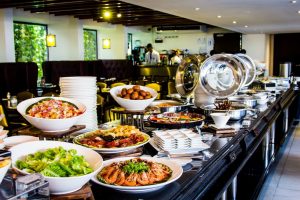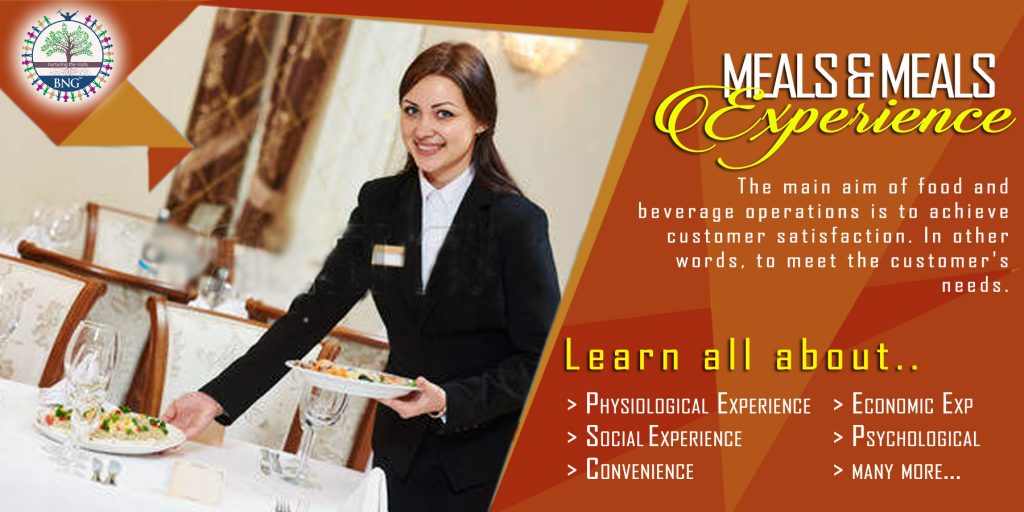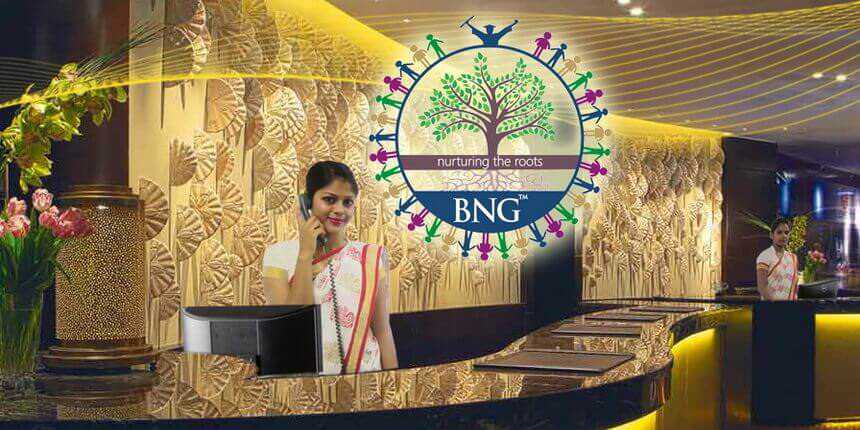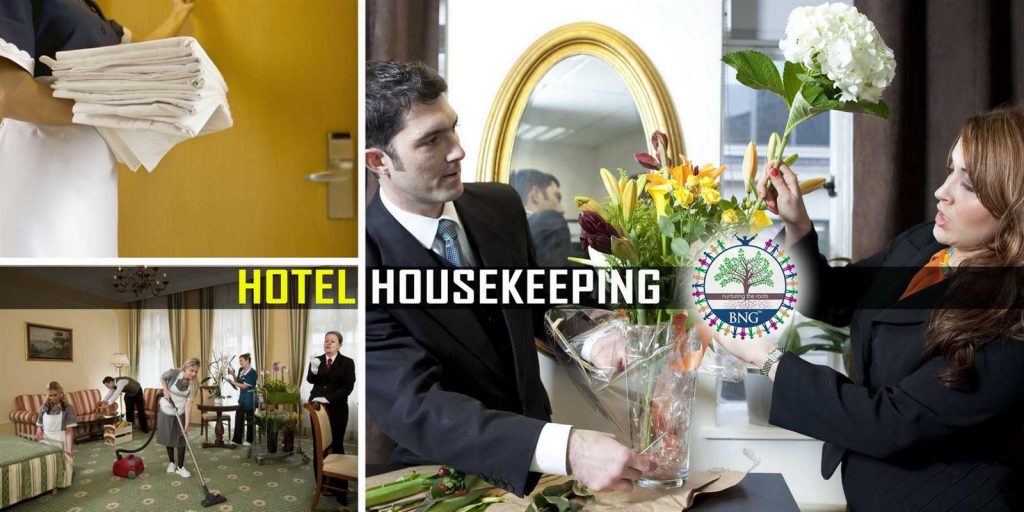Meals
The types of meals and the applicable menus vary as per the tendency of food service customers to eat when hungry. Meals are taken at times and in a style, which do not fully accord with “traditional” ones. Following are the various types of meals that may be offered in different types of catering establishments:

- Continental Breakfast :- Café complet, i.e., coffee or tea complemented(or completed) with rolls, butter, conserve.
- Breakfast:- Petit déjeuner, the French term includes both Continental and English / American breakfasts.
- Brunch:- A meal between breakfast and luncheon.
- Elevenses (or snack):- Goûter (literally ‘to taste’), the French term is used particularly for light food offered to children mid-morning (or late afternoon).
- Luncheon:- Déjeuner or Lunch is a meal with a shorter menu and with fewer courses than a dinner menu, with emphasis on stews, roast joints, grilled meats, cold buffet and hot puddings.

- Afternoon Tea:- Tea or coffee taken usually at Five o’clock, with biscuits or cookies.
- High Tea:- A tea meal including hot or cold cooked items.
- Dinner:- Diner in French, is regarded as the principal meal, and affords an opportunity for artistry in menu composition. At dinner, guests come for relaxation, to enjoy food, dining rituals and the atmosphere. Customers appreciate a longer menu with a choice of more exotic or esteemed dishes.
- Supper:- Super is a less formal evening meal, taken for example, after the theatre. At suppers, there are fewer courses and dishes are lighter than those served at dinner. Normally, set supper menus consist of three courses only, with many choices in the second or main course.
The Meal Experience
The main aim of food and beverage operations is to achieve customer satisfaction. In other words, to meet the customer’s needs. The needs that the customer might be seeking to satisfy are:
- Physiological: For example, the need to sate one’s appetite or quench the thirst; the need for special foods (diabetic, vegetarian)
- Economic: For example, the need for good value; rapid, fast service; a convenient location
- Social: For example, when desiring enjoyable company; going out with friends or business colleagues; attending functions to meet others
- Psychological: For example, the need for enhancement of self-esteem; fulfilling life-style needs; the need for variety; as a result of advertising and promotion
- Convenience: For example, as a result of being unable to get home (shoppers, workers) or having to attend some other event (cinema, theater); the desire for someone else to do the work; the physical impossibility of catering at home (weddings and other special functions)





